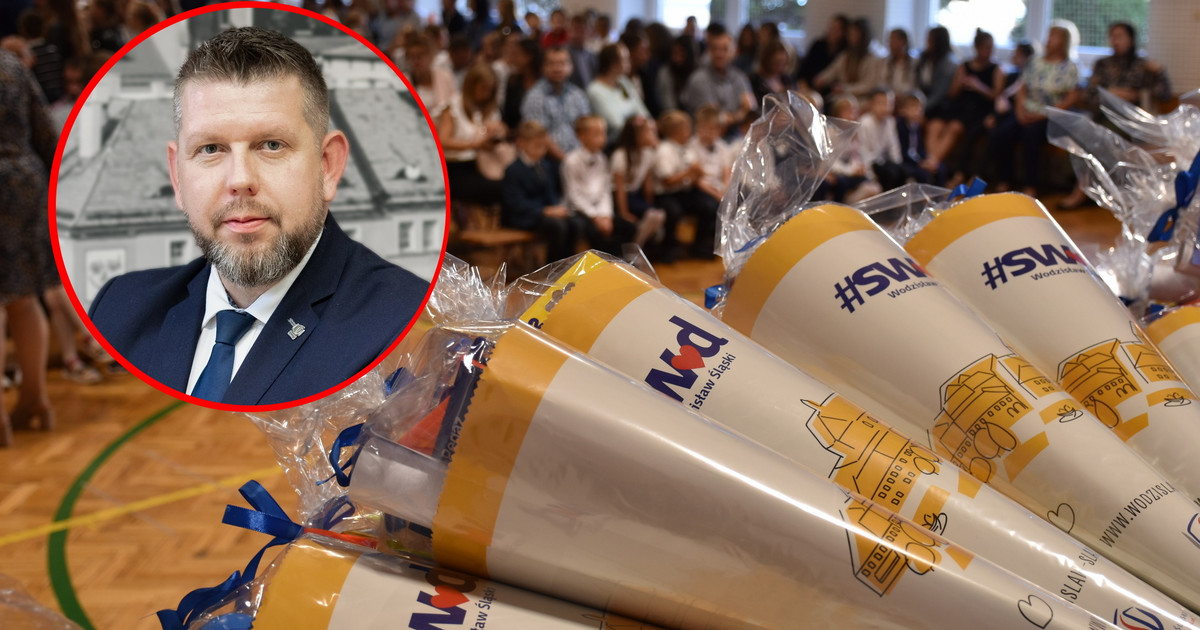- Revolutionary changes will affect all children from the smallest elementary grades in Wodzisław Śląski. It will also be introduced gradually in the older classes
- – We plan to reduce the current model of exams and tests – announces the city’s mayor, Mieczysław Kieca
- In an interview with Onet, he explains what the students will do on the fifth day. “We can’t escape the Internet. On the other hand, we see the need to learn practical things, the craft,” he says
- More important information can be found on the Onet homepage
There has been much talk of revolution in the schools in Silesia for several weeks now. There are heated discussions on the Internet. As often happens, the idea of ”grassroots education reform” has its ardent supporters and staunch opponents. In an interview with Mieczysław Kieca, Mayor of Wodzisław Śląski, we emphasized that in this city, since the start of the new school year, students and parents will indeed face great changes.
The changes will affect all children from the youngest grades in all primary schools in the city. From September, students in Years 1 to 3 will only have four days of lessons at school desks. In older years (grades four through eight) the changes will be introduced successively.
However, the changes do not mean a shortening of the school week and the need for parents to organize childcare. The fifth day – as we hear in Wodzisław municipality, it doesn’t have to be Friday – the students will be devoted to other activities as part of the school classes.
— We started with a four-day “traditional” learning week. Of course, the children will be taken care of for five days. The fifth will be the time for design work. We assume that on that day it is not necessary to conduct classes in the educational institution – explains Mieczysław Kieca, Head of Wodzisław Śląski, in an interview with Onet.
He adds that design work includes, for example, taking part in sewing, carpentry, information technology and art classes, but also going for walks or visiting science centers or a community centre. Kieca also offers lessons dedicated to information society issues. And most importantly, parents will not pay extra for these activities.
– We cannot escape the issue of smartphones, the Internet, we must learn to critically evaluate content, check sources, secure our lives in social media – assesses Mayor Wodzisław Śląski.
On the other hand, we see the necessity of learning practical things, craftsmanship. We want children to use our urban center for science and technology, which includes, for example, a carpentry workshop. Or imagine we have a day dedicated to art. We combine theatre, literature and the Polish language, and the lessons are conducted in a community center with exercises related to drama and performance. He says this is what the design business is all about.
Another change that will be gradually introduced in primary schools in Wodzisław starting in September is the change in the grading system. Students will only receive a numerical assessment on the certificate, while partial assessments will be replaced during the academic year with descriptive assessments. That’s not all.
— We plan to reduce testing using traditional assessments in favor of testing, but through individual work with the student, discussing the knowledge gained and identifying items for improvement. We plan to limit the current form of competitions and tests, Mieczysław Kieca announces.
Another element that we will gradually implement is to move away from the bells and, where possible, to shorten the 45-minute lesson periods. In grades one through three the solution will be relatively easy to implement. He adds that it will be more challenging in the higher grades, because many teachers work in several schools.
And in some schools in Wodzisław Śląski, similar solutions were already tested last year. Changes are made in accordance with the assumptions of the city strategy adopted at the beginning of last year. It gives, among other things, the possibility of merging classes 4-8 into thematic blocks, and also tells teachers how to use the platforms, tutorials, missions, experiments and laboratories in their daily work. The authors of the idea were inspired by European solutions, including Scandinavian ones.

Echo Richards embodies a personality that is a delightful contradiction: a humble musicaholic who never brags about her expansive knowledge of both classic and contemporary tunes. Infuriatingly modest, one would never know from a mere conversation how deeply entrenched she is in the world of music. This passion seamlessly translates into her problem-solving skills, with Echo often drawing inspiration from melodies and rhythms. A voracious reader, she dives deep into literature, using stories to influence her own hardcore writing. Her spirited advocacy for alcohol isn’t about mere indulgence, but about celebrating life’s poignant moments.








